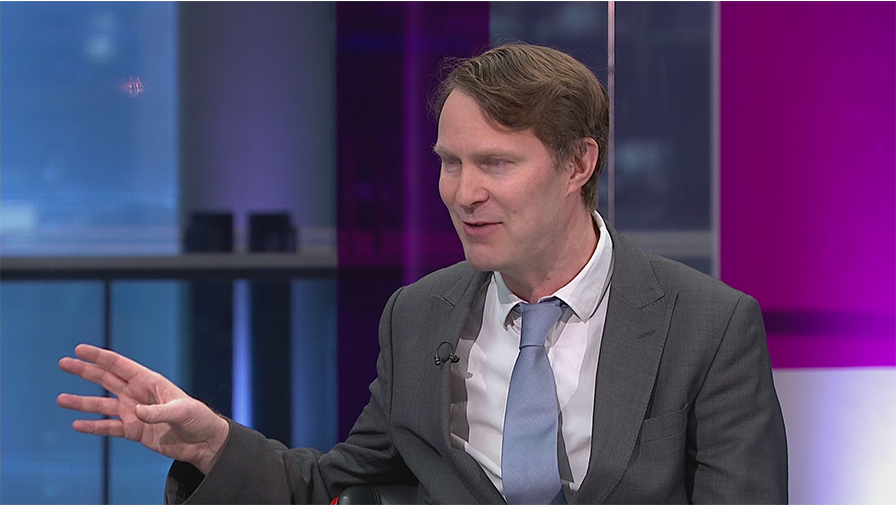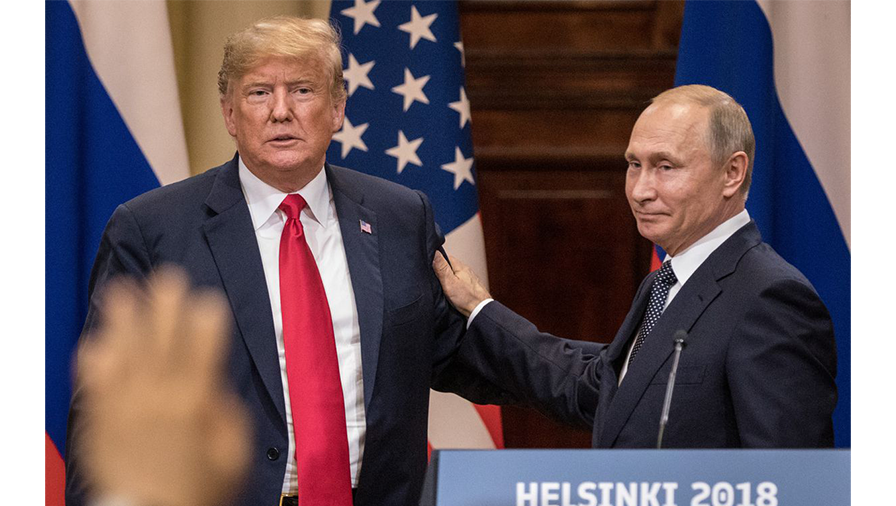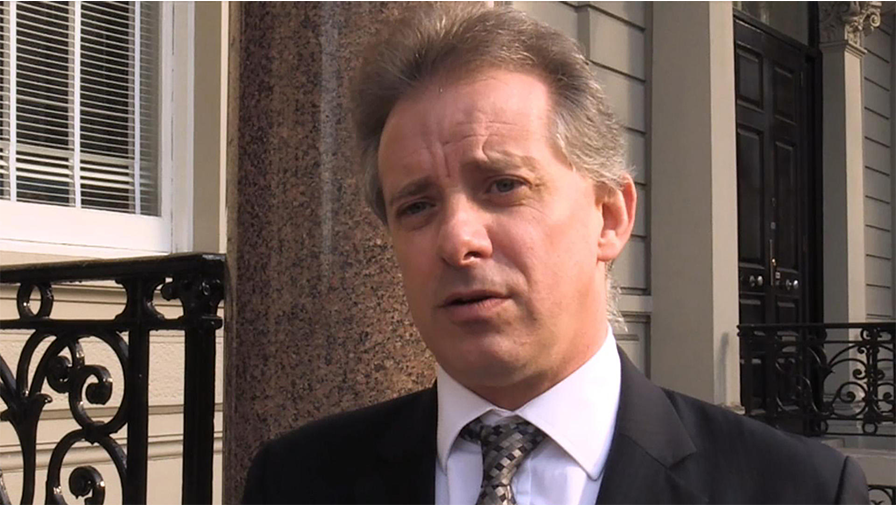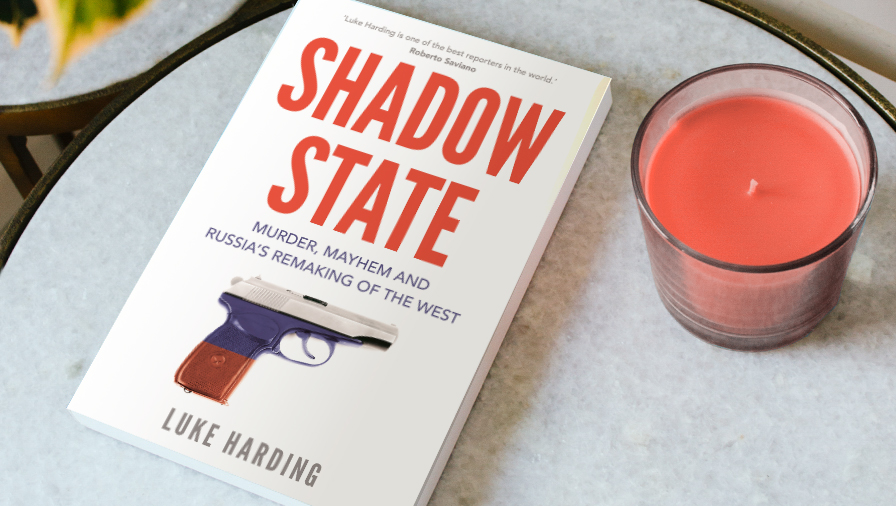Russia redux: How Putin restored the Soviet state
OPINION: Guardian journalist Luke Harding exposes new Cold War tactics that undermine the West.
OPINION: Guardian journalist Luke Harding exposes new Cold War tactics that undermine the West.
In 1939, Sir Winston Churchill defined the Soviet Union, and its Imperial Russian predecessor, as a riddle wrapped in a mystery inside an enigma. He went on describe it as “an inscrutable and menacing land that plays by its own rules, usually to the detriment of those who choose more open regulations”.
For many, these words are as relevant today as when Churchill was responding to the signing of the Nazi-Soviet pact in August 1939 – just days before the outbreak of World War II – that temporarily sealed an alliance between Europe’s two major dictatorships.
Yet Russian culture and history is widely studied and admired in the West. This contrasts with its political direction under President Vladimir Putin, who with his authoritarian acolytes in Belarus and Kazakhstan seems bent on re-inventing the former Soviet Union minus the communist ideological baggage.
Today, much about Russia is obvious but it is still lacking in transparency. The rise of Putin, an ex-agent of the KGB spy agency, has re-energised the police state under its abbreviations of FSB, SVR, and GRU. The aim of restoring Russia to its former regional role, if not a global one to rival the US, China or the European Union, is being carried out with formidable determination.
Russia was never an economic superpower, and lost some of its military and political might with the collapse of the Soviet Union, followed by a 'democratic' interregnum under Boris Yeltsin. But Putin has restored the powers of the GRU (military), SVR (foreign), and FSB (domestic) intelligence services to suppress dissent at home and embark on foreign adventures.
New alliances
Politically, with communism a finished ideology outside of China and a handful other states, Russia has widened its alliances to include quasi-fascist movements. These range from far-right nationalists and anti-immigrant parties in Europe, to leftist and anti-democratic ones in Latin America, Asia, Africa, and the Middle East.
This meant supporting the election of Donald Trump over Hillary Clinton in 2016, and filling gaps as Trump withdrew US influence around the globe. Putin, over the past two decades, has used the same playbook as one of his predecessors and KGB chief, Yuri Andropov.

In the words of Luke Harding, a British correspondent based in Moscow for The Guardian from 2007 to 2011, these have included “trickery, deceit, law-breaking, withholding and concealing the truth, as well as large-scale disinformation, rolled out at home and abroad”.
Harding’s new book Shadow State illustrates these at length, adding that they are part of Russia’s strategy, in the short term, to end US and EU sanctions and, in the longer term, “create chaos and division within the West, not by starting from nowhere but through exploiting already existing tensions and cleavages”.
Successful strategy
This strategy proved wildly successful during the Trump era, as the US president employed some time-honoured KGB practices: attacking journalists (Harding was himself expelled from Russia) for creating ‘fake news’, lying without shame, propagating disinformation, and creating the impression there is no truth.
“Moscow came up with the false narratives that Trump and his Republican defenders willingly repeated, such as the idea that Ukraine rather than Russia meddled in the 2016 election.”
Harding notes other similarities between Trump and Putin, which he elaborates in detail over 330 pages of this updated paperback edition. Shadow State was first published in 2020 and follows four other books Harding has produced on Russia: Mafia State (his expulsion from Moscow), The Snowden Files, A Very Expensive Poison (on the murder of Alexander Litvinenko), and Collusion: How Russia helped Trump win the White House. He is also co-author of a book on Julian Assange and WikiLeaks.

Trump-Putin similarities
Harding does not pull back in describing Trump-Putin similarities: “The two men put their own personal and political interests before those of the nations they were meant to serve. Friends and relatives were more important than institutions or the law; the boundary between statecraft and moneymaking opportunities became increasingly fuzzy.”
Harding’s justification for these claims are already part of the public domain, such as the follow-up to the Litvinenko poisoning with the Salisbury attack by GRU agents on Russian defector Sergei Skripal and his daughter. The poisoning ploy was again used against dissident leader Alexey Navalny, now serving a long jail term.
Both incidents, documented in separate chapters, have been blatantly denied by the Kremlin, as was responsibility for Malaysian Airlines flight MH17, shot down over Ukraine.
Other chapters cover Russian hacking exploits, first exposed by Dutch security intelligence and the subject of Huib Modderkolk’s previously reviewed There’s a War Going On But No One Can See It; and the doping scandal at the 2014 Winter Olympics in Sochi.
But there’s new material on a lot of lesser-known GRU mishaps, such as two failed attempts to kill an arms dealer in Bulgaria; the defection of Victor Suvorov, who wrote a number of books linking the KGB to the decline of the Soviet Union; and the firing of its chief, Igor Korobov in 2018, aged 62 (he died a month later in unexplained circumstances).
Other revelations include details about Russia’s little-known mercenary army, the Wagner Group, run by a former GRU officer and said to be named for the German composer whose music was the feature of the helicopter scene in Apocalypse Now. Harding tracks their activities along with many of Putin’s inner circle of associates, some of whom are billionaires – such as Evgeny Prigozhin, a petty criminal turned restaurateur in St Petersburg, where Putin was born and first built his power base after returning from his KGB post in the former East Germany.

Unnamed sources
Harding seldom lands an interview with such characters and draws heavily from unnamed sources, who naturally also provide most of the snappy quips. One source named wrote the ‘Steele Dossier’, which claims Trump was compromised on several business trips to Russia, starting in July 1987.
Christopher Steele, a former British intelligence agent, claimed the FSB used hidden cameras and microphones to record Trump’s stay in the presidential suite of Moscow’s Ritz-Carlton. This included the visit of prostitutes as part of a blackmail sting.
Steele’s report has been widely denounced in the Western media but Harding supports Steele’s credibility and the likelihood that his account is accurate though, as he told Harding, “very difficult to prove”.
Harding is also sceptical about the lack of evidence turned up in the many official US inquiries, during Trump’s term, of the president’s past connections with Russia, as well as those Trump initiated into President Joe Biden’s son Hunter and his dealings in Ukraine.
Another controversial area is the ‘Moscow gold’ that was funnelled through British businessman Aaron Banks to the successful Brexit campaign of Nigel Farage and Ukip. The source of Banks’s funding has never been made clear but Harding puts up a convincing case.
The Russians’ connections with Farage don’t stop there, as Harding says they also, through Banks, paid for the Ukip leader to campaign in support of Trump in his presidential bid. Harding completes the circle when he returns to Trump’s re-election campaign in 2020 with much of his relationship with Putin still unexplained. Trump is accused of aping the agenda of the more experienced Putin, by weakening global alliances, and embracing a new creed of nationalism and unilateralism.
The two leaders shared negative personal impulses, including “insecurity, a quickness to take offence, and vengefulness … [and] a paranoid view of the world grounded in conspiracy”.
The author concludes that America’s faults were mainly self-inflicted but: “It was possible to conclude that Russia had done more than game politics and democracy. It had succeeded, to some degree, in remaking the United States in its own shadow image.”

Shadow State: Murder, Mayhem and Russia’s Remaking of the West, by Luke Harding (Guardian Faber).
Nevil Gibson is a former editor at large for NBR. He has contributed film and book reviews to various publications.
This is supplied content and not paid for by NBR.
Sign up to get the latest stories and insights delivered to your inbox – free, every day.